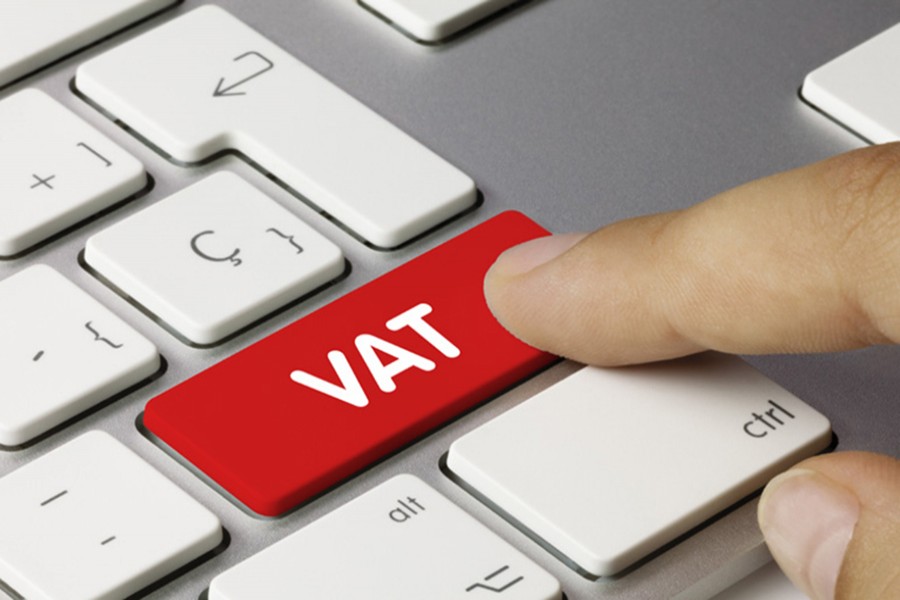Field-level VAT offices have discovered false and incomplete information provided to the database of electronic Business Identification Number (e-BIN), thus creating scope for tax evasion.
The VAT officials said the immediate action should be taken to clean up the false and fabricated data in the e-BIN to prevent the loss of revenue arrears.
More than 0.1 million businesses have so far obtained the e-BIN by entering the online system under the VAT (Value Added Tax) Online Project.
Many of the field-level VAT officials, preferring anonymity, said a number of operational problems surfaced owing to the issuance of online nine-digit electronic BIN without verification.
The officials raised the issue in a recent meeting at the NBR, chaired by board chairman Md Mosharrof Hossain Bhuiyan.
Officials, who attended the meeting, said the VAT commissioners noted that the issuance of online BIN does not conform to the 1991 law.
The online issuance of BIN is also not supported by the 1991 law as it has been designed in line with the new VAT law, which the government deferred for two years.
They also requested the revenue board to take necessary steps so that the data of the e-BIN holders in the VAT online system could be cross-checked.
In response, the revenue board said the commissioners would be able to cross-check the furnished data after completion of the system's rollout.
Earlier, the Commissioner of the Customs, Excise and VAT Commissionarate (north), in a letter to the National Board of Revenue, had given a list of e-BIN holders who have submitted false address of their offices.
In an inspection, the VAT office found that offices do not exist in the locations as specified.
"It's important to know the location of businesses for VAT collection. Pre-verification of declared address and other information at the time of e-BIN registration is important," the letter said.
VAT commissioners have found some businesses have obtained VAT registration or e-BIN as manufacturers to enjoy the existing tax benefit but the VAT office did not find any manufacturing unit of the company after physical inspection.
They also detected the concealment of information of the actual turnover of some companies.
The VAT authority issues the e-BIN without the verification of addresses.
Businesses can obtain multiple BINs, even obtain a new BIN in another address if the VAT authority locked their identification for evasion.
There is no scope for the verification of TIN, trade licence, bank account of the businesses at the time of the issuance of e-BINs. So, anyone can furnish fake documents for obtaining e-BIN, the officials said.
Other problems of the e-BIN system include no provision for attaching TIN, trade licence or NID with the online BIN, complexities over registering the branch offices after obtaining the central registration etc.
VAT officials cannot recognise what products the company is producing or the nature of services through scrutiny of the online VAT registration paper.
"The VAT registration paper should also have provisions for incorporating the nature of business so that officials can know whether the BIN holder is a producer, importer, exporter, service provider or supplier," said a senior field-level VAT officer.
He said the issuance of online BIN for the businesses should be stopped immediately as it started as groundwork of the new VAT law.
The VAT authority should deactivate e-BINs if the new BIN holders, who do not have pre-verified old BINs, fail to submit VAT returns within three consecutive months after obtaining the BIN, he said.
A public notice should be issued in this regard so that those businesses cannot run their activity using the deactivated e-BIN, he added.
The nine-digit BIN holders will be able to activate their BIN upon submission of returns and after its verification, he said.
Even, the e-BIN holders, who already submitted returns, should submit their valid documents to the relevant VAT circle to validate their registration, he added.
The tax-collecting authority introduced the e-BIN last year as a part of the online VAT administration system.
However, the e-BIN has been introduced to reduce the harassment of the businesses while obtaining VAT registration from the field-level offices.
Businesses can obtain the online BIN without visiting the VAT offices where paying bribes to the staff members is a norm.
doulot_akter@yahoo.com


